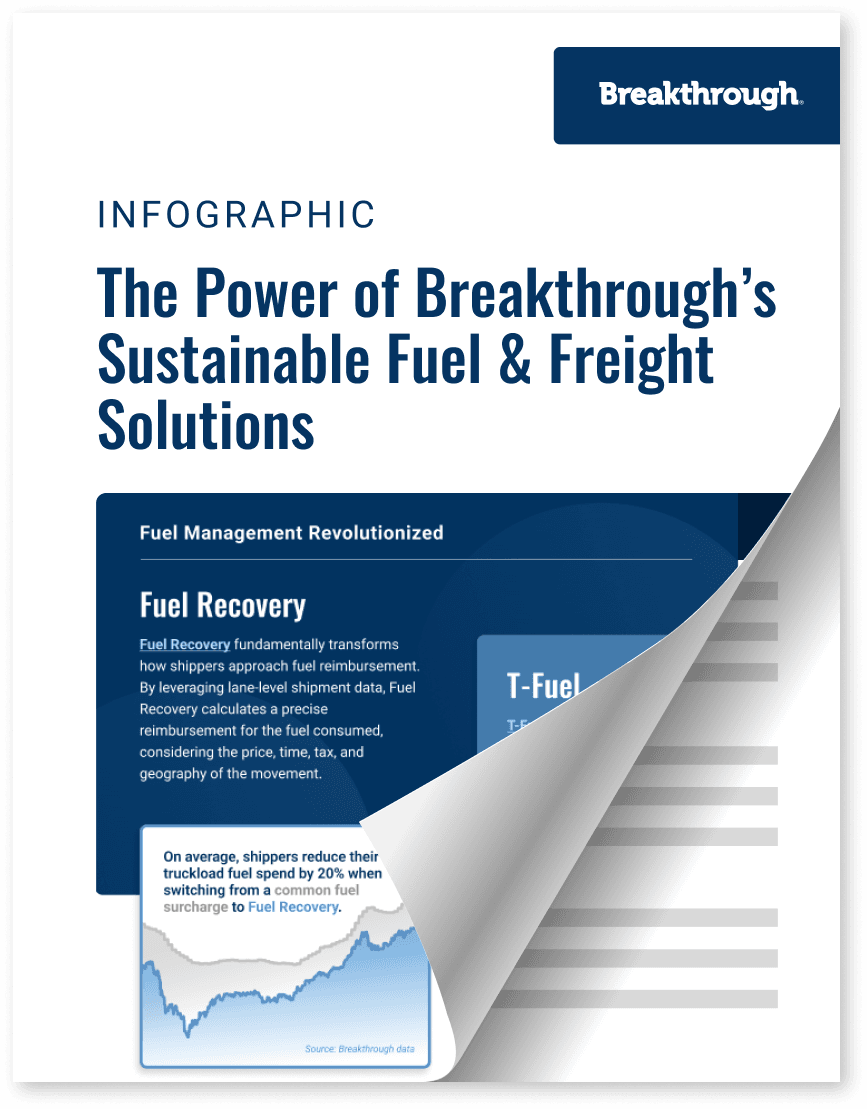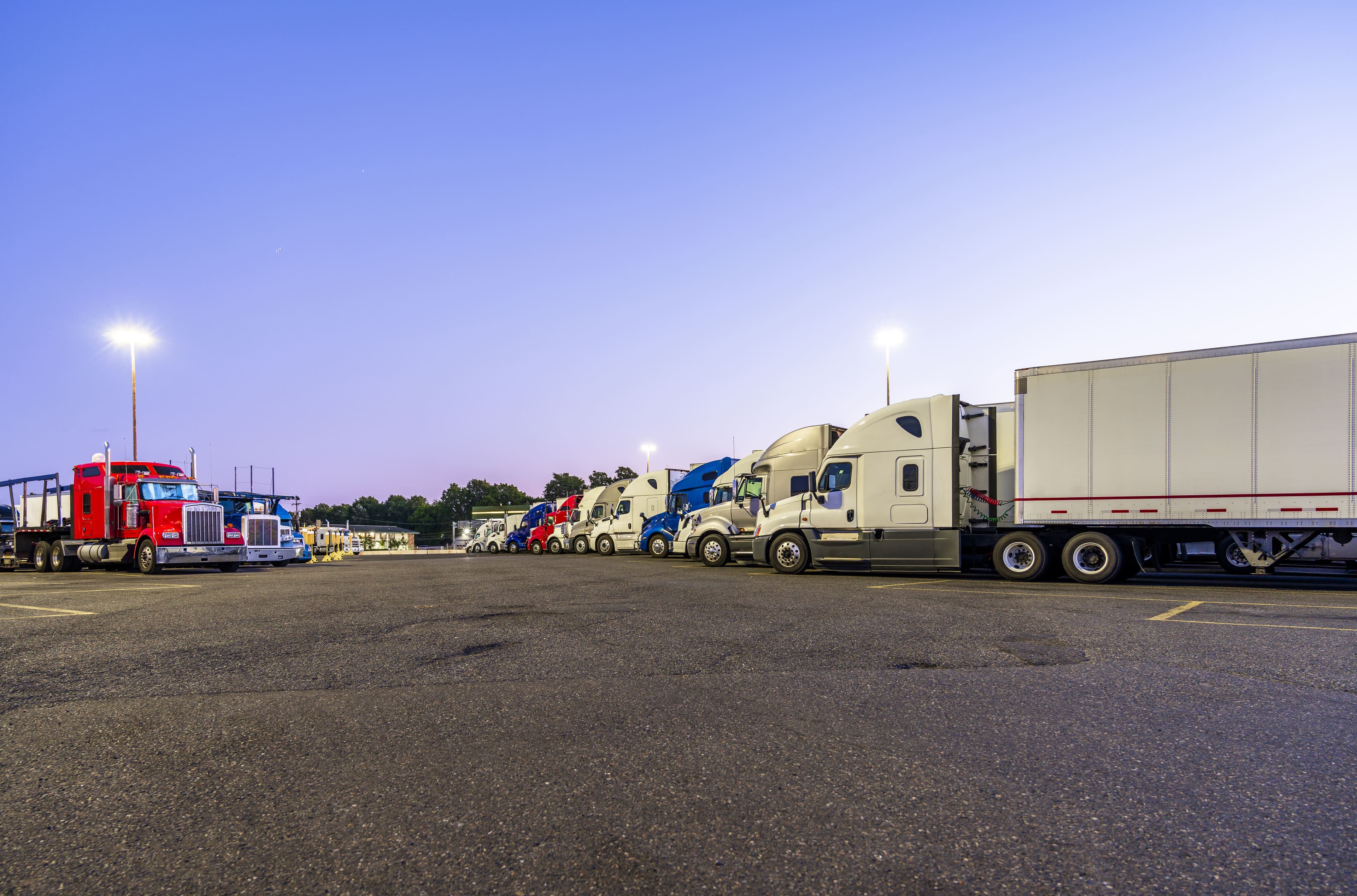The Power of Breakthrough's Sustainable Fuel and Freight Solutions

Freight
3 min read
July 17, 2024
Market Events
4 min read
July 16, 2024
Market Events
3 min read
July 8, 2024

3 min read
January 25, 2019

Share:
In addition to the fuel tax referendums in California and Missouri that earned a place on each state’s early-November mid-term election ballots, Colorado and Washington also had energy-related ballot initiatives that voters entertained. The core price drivers of supply & demand, geopolitics, and global economics continue to earn the lion’s share of the Breakthrough Applied Knowledge team’s attention when analyzing fuel market trends, however the energy-focused proposals in Washington and Colorado were a perfect example of hidden price drivers historically unaccounted for by shippers not leveraging the Breakthrough Advantage. Regulatory intervention often plays a silent role in upstream and downstream energy dynamics that later impacts the cost of fuel, reinforcing the value of transparency that Breakthrough provides to our clients’ transportation fuel spend.
Check out our blog to read more about Colorado’s anti-fracking measure.
In the wake of November’s midterm elections where powers in the house and the senate were turned, and of the Trump Administration’s recent dismantling of federal climate policies, climate responsibility has been diverted to the state level. States now have an opportunity to promote clean-energy initiatives of their own and to better align the US with other countries who are actively developing climate conscious policies.
With this new responsibility—and opportunity—some states are already moving toward their own unique solutions. Initiative 1631 – Washington’s political strategy to place a carbon tax on fossil fuels – would have added Washington to a group of West Coast climate supporters that already includes California and Oregon. This was not Washington’s first carbon tax effort, however previous failed attempts stifled the movement significantly, making its resurgence notable.
The proposal placed a carbon fee of $15/metric ton of carbon dioxide on fossil fuels beginning January of 2020, with incremental increases of $2/metric ton annually until the state meets its greenhouse gas emissions objective set for year 2035 (see chart below). These fees translate to a roughly 15 cent per gallon carbon tax on diesel at the outset. The state would gain a projected $2 billion in state tax revenue in the first five years of the mandate, though imminent struggles for refineries, power plants, and other key emitters would consequently burden a portion of the state’s economy.

Like the other three major energy-related initiatives during mid-term elections, Initiative 1631 was not passed after 57 percent of voters opposed the heightened costs, despite the state’s proactive move toward positive climate change. Similar attempts to place a financial penalty on fossil fuels in Washington could likely emerge in the future, considering the state’s continued advocacy for promoting cleaner energy and establishing a carbon program that helps position the US with other nations at the forefront of reducing harmful emissions.
Understanding the numerous drivers of fuel costs remains crucial in achieving supply chain visibility and creating a sustainable competitive advantage. To learn more about how Breakthrough can help you gain further insight into the different drivers of transportation fuels costs, contact us!

3 min read
July 17, 2024
Maximize transportation efficiency with cohesive fuel and freight strategies. Discover the power of enhanced visibility, cost-effectiveness, and sustainability.
Read more
4 min read
July 16, 2024
Discover how the recent elections in Mexico and the EU are expected to influence energy policies, fuel prices, and dynamics in the transportation sector.
Read more
3 min read
July 8, 2024
Understand the state-specific changes in diesel tax rates and explore strategic solutions for shippers to accurately calculate fuel reimbursements to carriers.
Read more